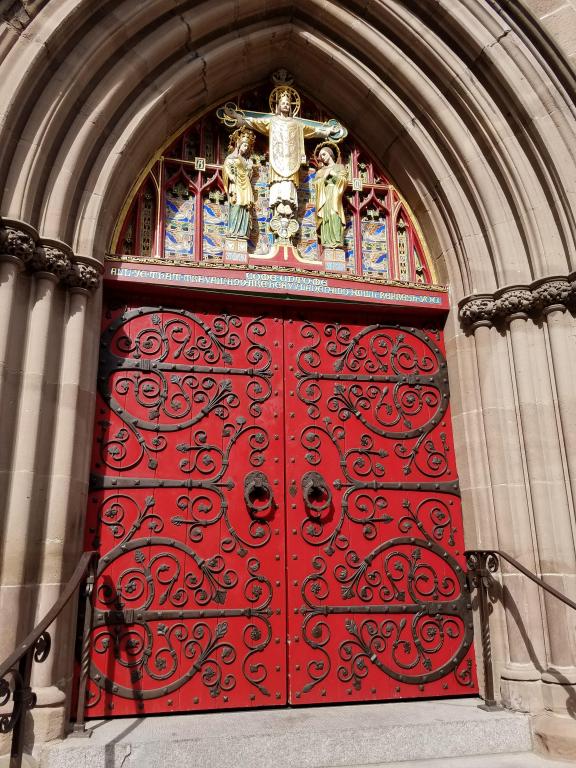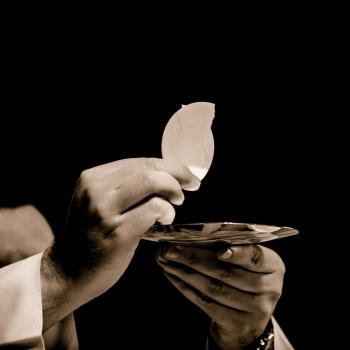 The emergence of people who identify as “spiritual, but not religious” spooked mainline denominations. The decline in the membership of churches, coupled with the climbing number of SBNRs, prompted the Protestant mainline to make a number of adjustments. There was nothing particularly thoughtful or systematic about those adjustments. It was random, diffuse, and no one was asking what the consequences of the changes that were made might be. Mainline churches were just looking for a solution. I once heard one bishop say that if he could find someone who could change a taco stand into a thriving church, he would ordain him.
The emergence of people who identify as “spiritual, but not religious” spooked mainline denominations. The decline in the membership of churches, coupled with the climbing number of SBNRs, prompted the Protestant mainline to make a number of adjustments. There was nothing particularly thoughtful or systematic about those adjustments. It was random, diffuse, and no one was asking what the consequences of the changes that were made might be. Mainline churches were just looking for a solution. I once heard one bishop say that if he could find someone who could change a taco stand into a thriving church, he would ordain him.
The result has been wide-ranging, disparate experiments. Churches instituted “seeker” services. They prioritized questions and doubt over answers and guidance. They downplayed, if not denigrated “dogma.” They insisted that “faith as trust” was essential and that “faith as the content of what one should believe” was secondary, if not dispensable. They buried denominational identification where they could in the effort to avoid looking too churchy or doctrinaire. They opted for open communion and offered Ashes-to-Go. And, more recently – politics have moved front and center in some congregations and denominations — privileging social engagement over traditional priorities. (It is ironic that political dogmatism is so important in a church that has given up dogma.)
None of this experimentation has contributed to a significant change in the membership of mainline churches. In fact, membership continues to collapse at an unprecedented rate. What these changes have accentuated, however, is the decline of religion or, more accurately, a conscious movement away from religion. Of all the claims that might be made about trends in the early twenty-first century, the one that may be truly uncharted territory, is the conscious movement away from religion. As I have said to more than one classroom of students, this is the trend that will shape the church of the 21st century.
So, how do we respond? One thing that we could do is redouble our efforts, and some mainline churches are doing just that. The laundry list of desperate accommodations I’ve described above is not an artifact of the past. It is a work in progress, and an increasing number of clergy see themselves as facilitators of their congregants’ chosen paths – chaplains to whatever the culture produces.
The practical difficulty with this approach, of course, is that it hasn’t worked, and there is no reason to believe that it will. Declining attendance numbers in churches are charting a steady course toward extinction. But there are deeper theological problems with this approach, that would make it a questionable choice, even if it were workable: The church is the body of Christ and ordained clergy in every tradition promise to preach its message, preserve its wellbeing, and care for its members. Clergy are not chaplains to the culture or facilitators of customized spirituality. They are charged with nurturing a journey into God in Christ.
In that sense, Christian spirituality is religious in nature — if by religion one means that Christian spirituality entails certain convictions about the person and work of Christ and the church, as the body of Christ.
That Nones and SBNRs think that religion connotes other things cannot be ignored. Yes, to the minds of many, religion is all about institutions, bureaucracies, hypocrisy and abuse. We have fueled some of those associations. Others are rooted in cultural tropes that are not at all fair or reflective. But in either case, the church fails in its mission when it surrenders the richness of its spiritual tradition in favor of pandering to the ad hoc, elective tastes of the culture.
It is time for the church to get real about the religious nature of Christian spirituality or, to put it another way, the real and vital connection between spirituality and the church’s life and worship. For some it may be possible to be spiritual without being religious. For Christians no such facile distinction is possible. Spirituality is religious.
If the church declines in this country — it isn’t elsewhere in the world — it should decline being faithful to its calling.












